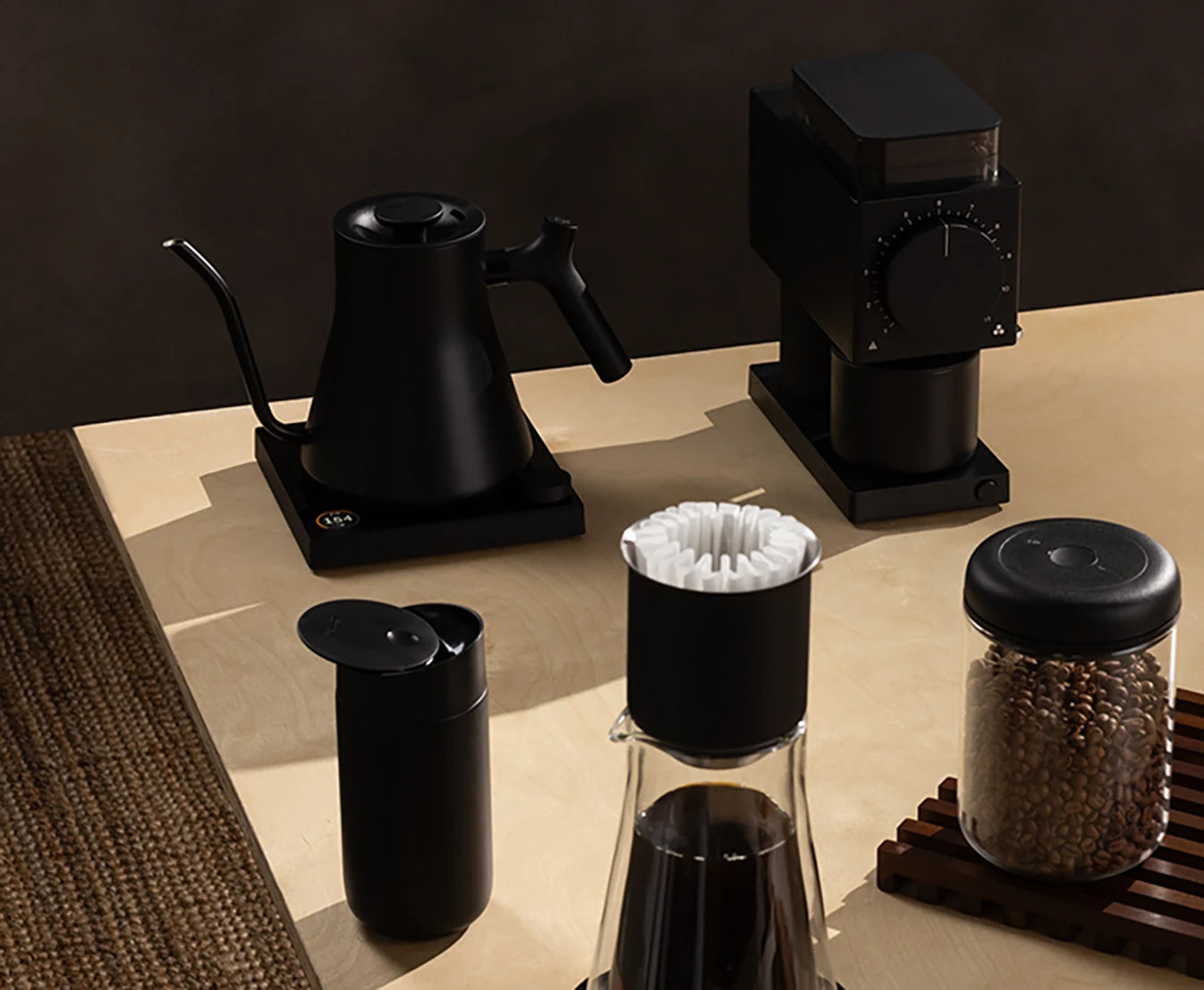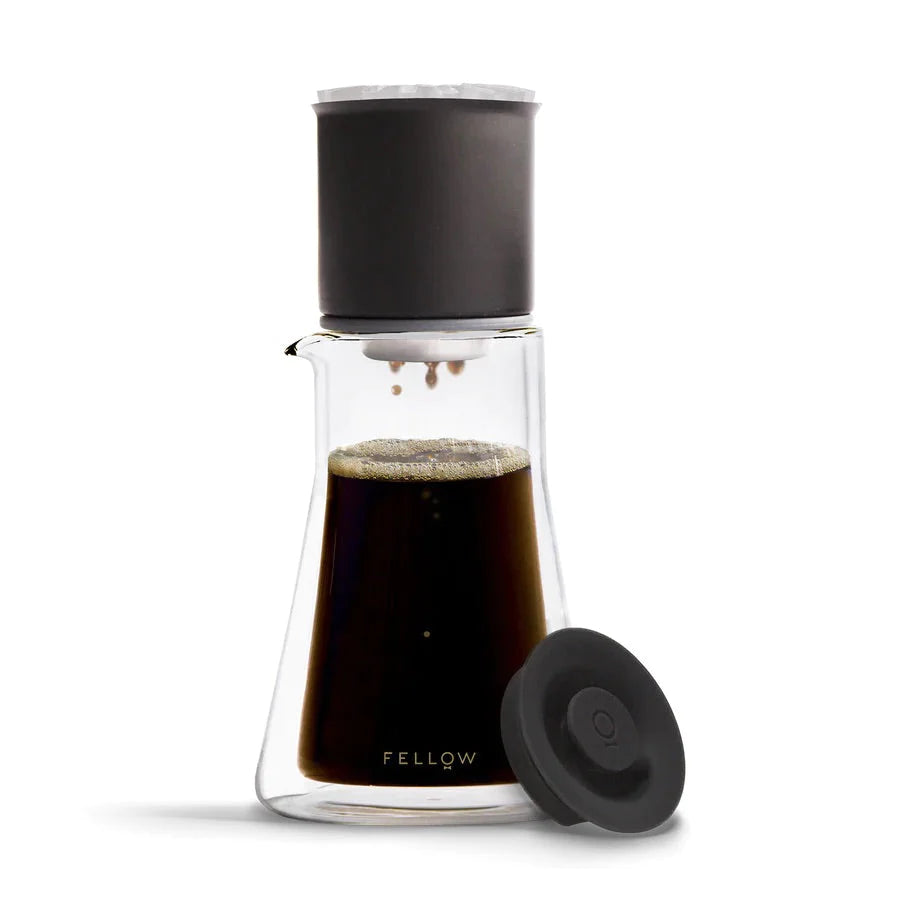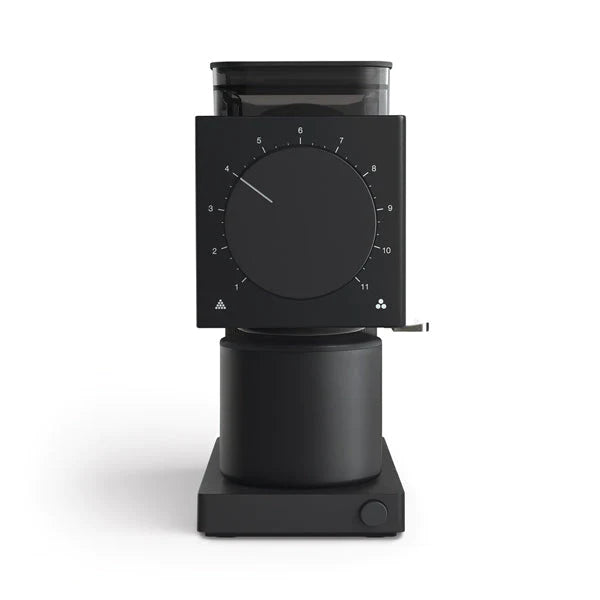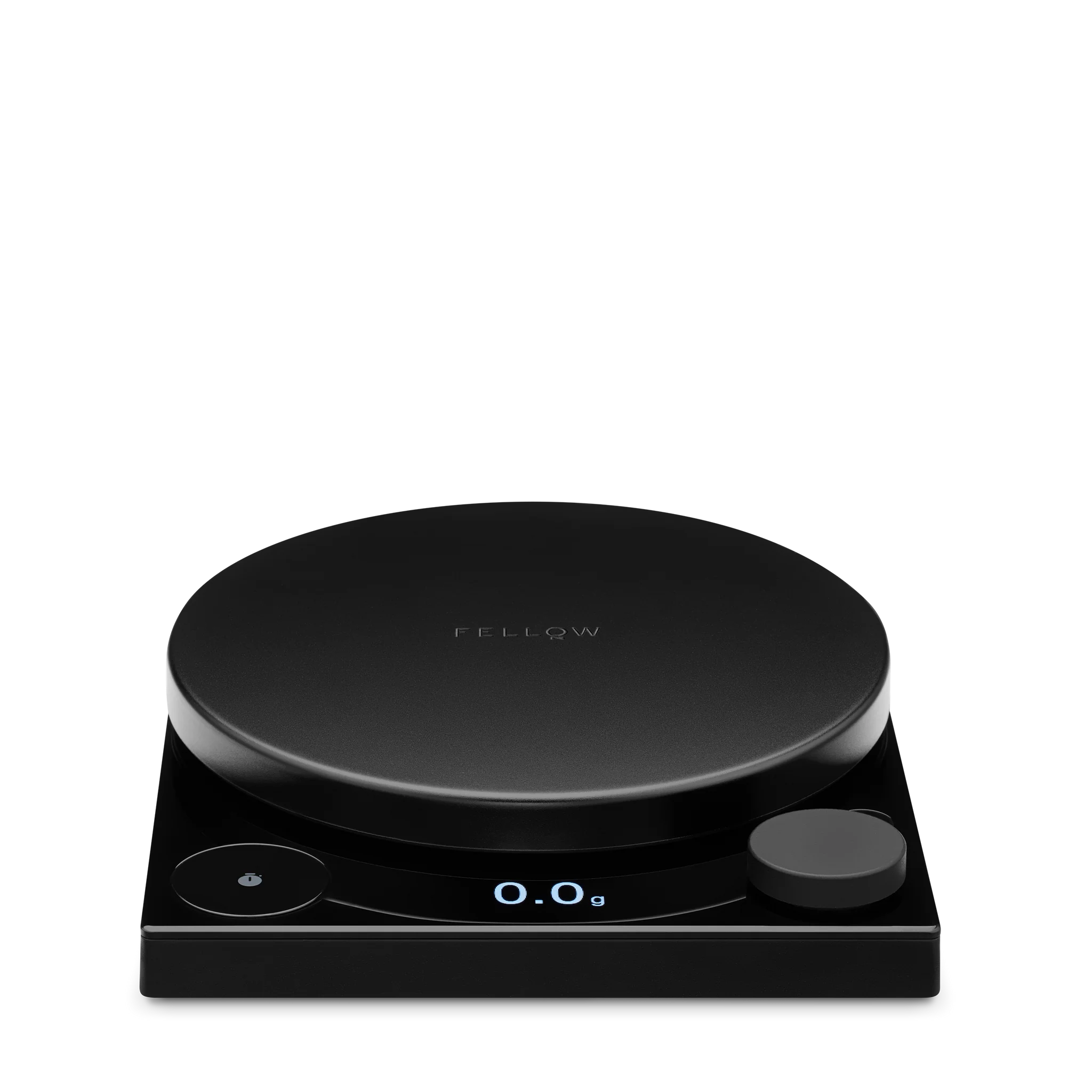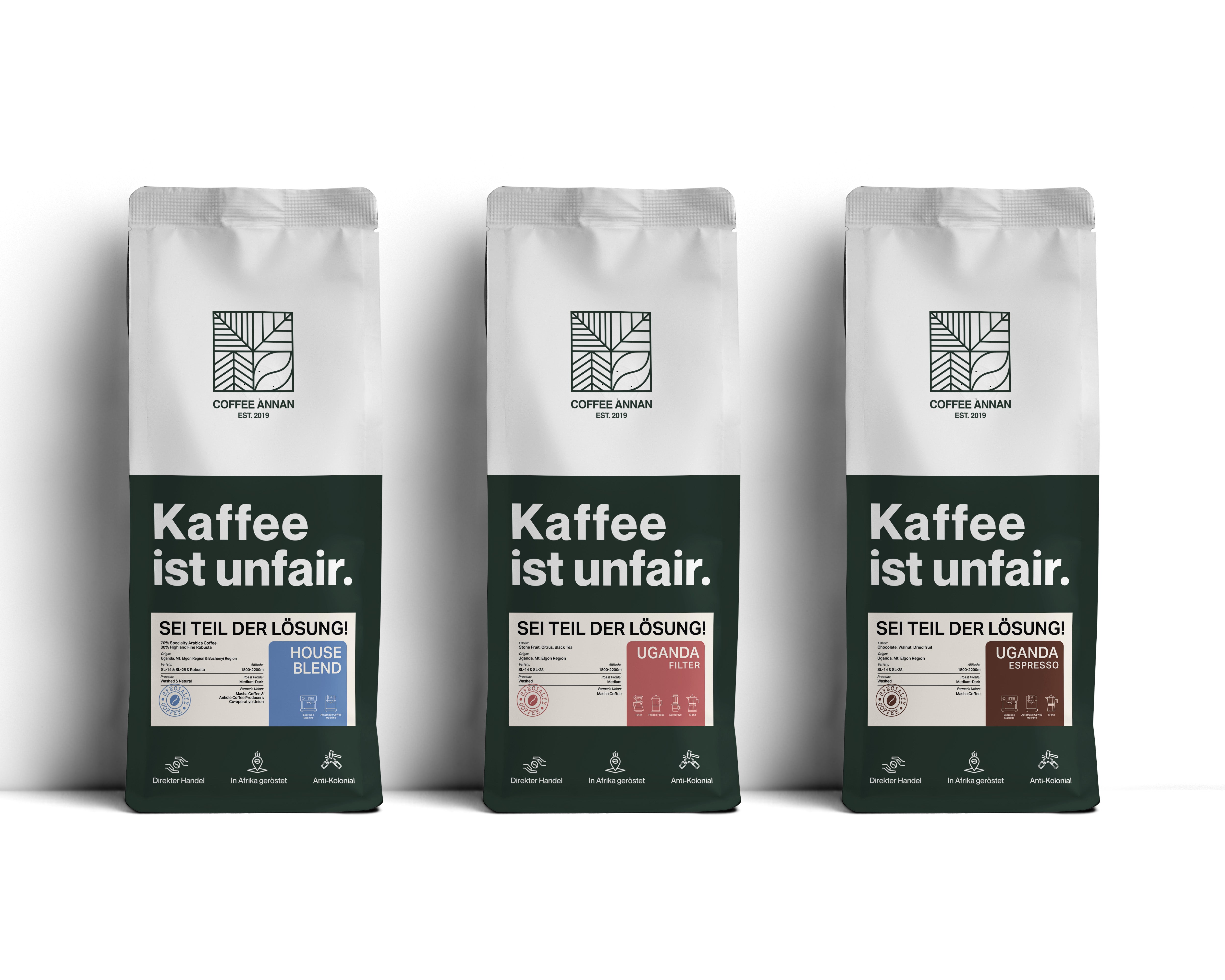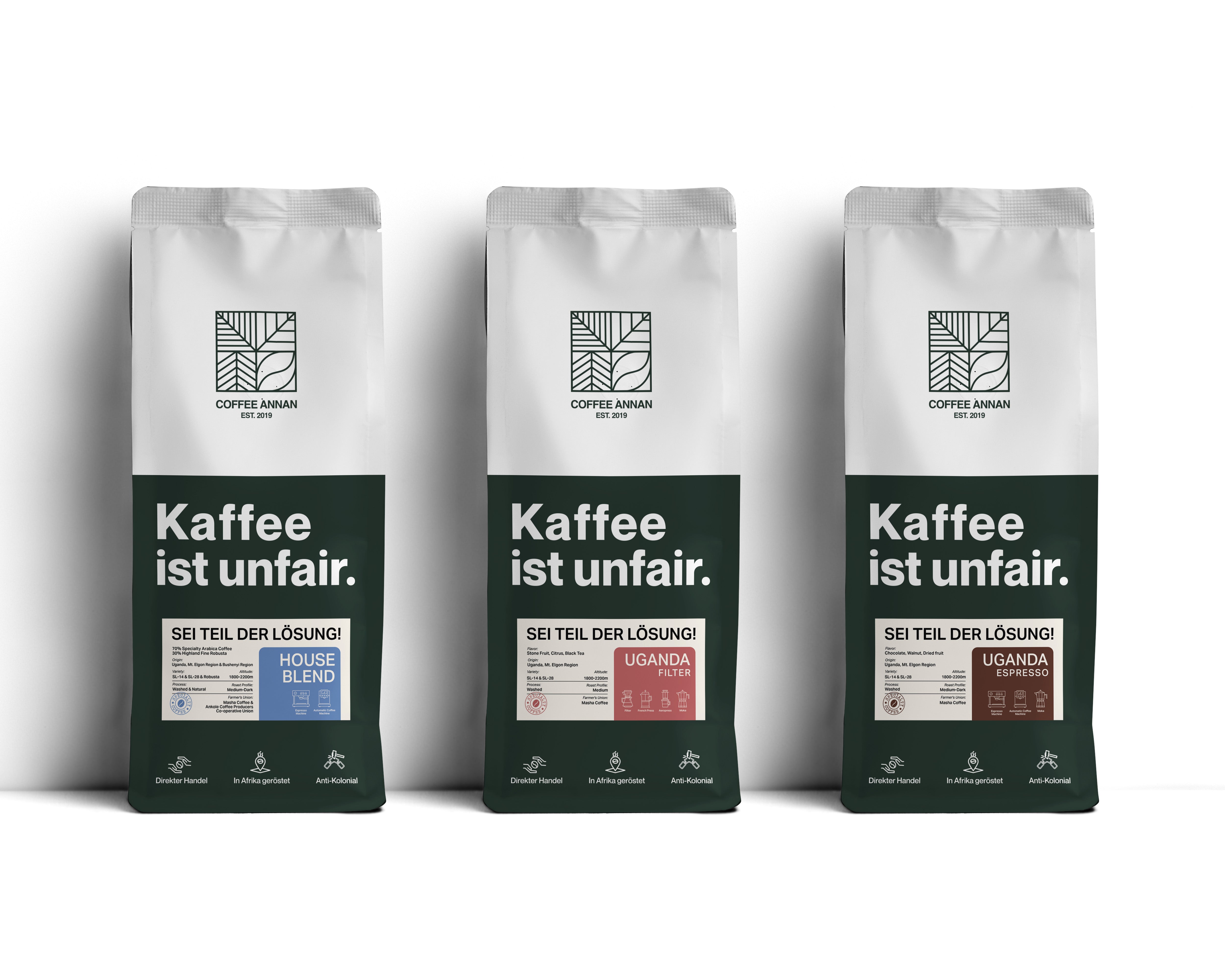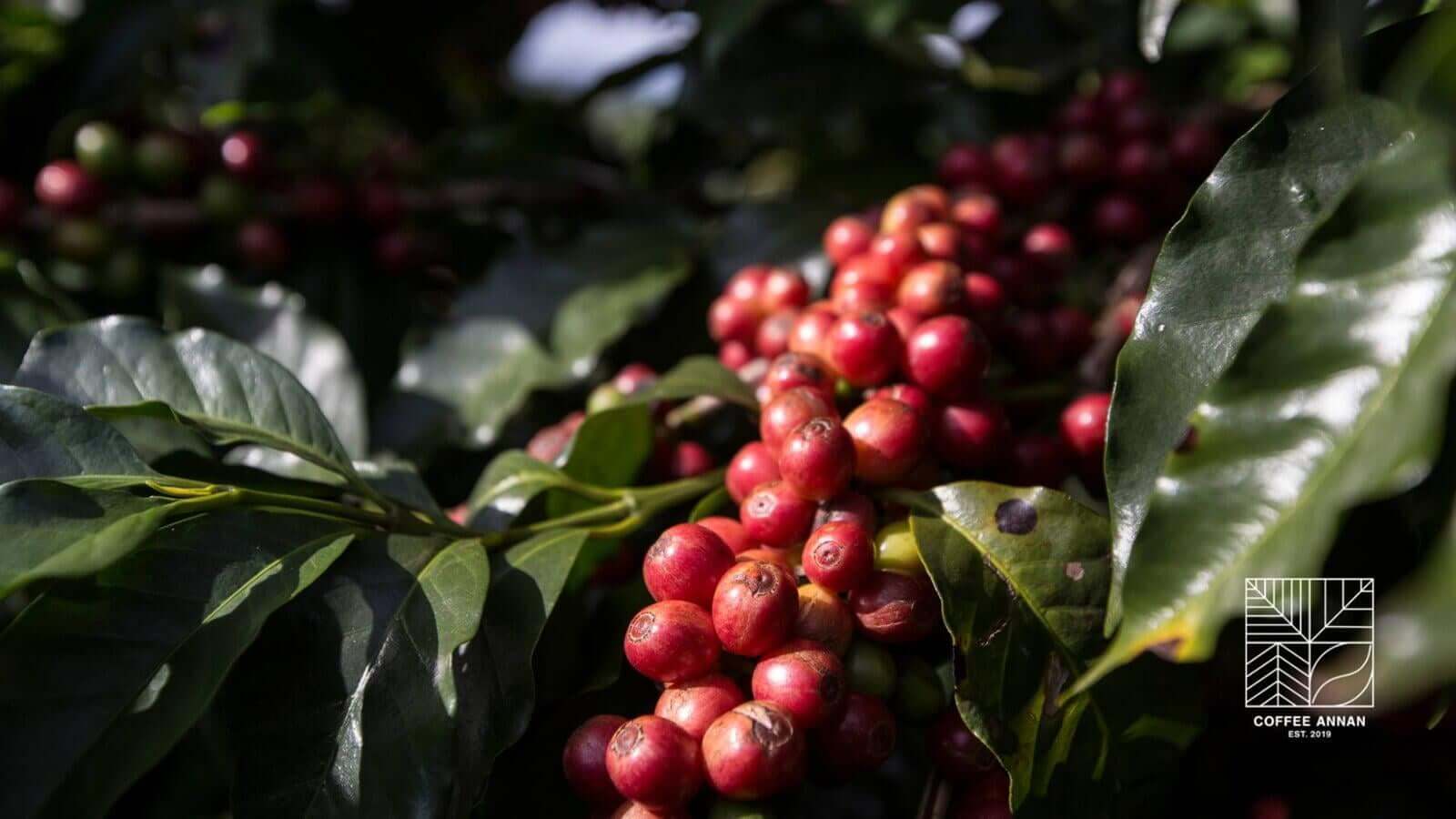We love the taste of our favorite brew, it helps us get going in the morning and for many of us, it’s part of our culture and tradition - but the pleasure often also has a bitter aftertaste. Coffee cultivation has always had a dark side. The tactic of simply looking the other way and continuing to sip our beloved pick-me-up in peace does not work anymore. It is high time to take responsibility - with sustainable and ethically sourced coffee from fair trade and sustainable coffee farming.
Eco friendly coffee is becoming increasingly important. Both consumers and retailers have recognized that we need to focus on sustainable coffee beans in order to continue enjoying our favorite brew without harming the environment and society.
Sustainable coffee farming strives to minimize the negative impacts of mass cultivation in growing countries, in three important dimensions - economy, ecology and social responsibility. Environmentally friendly methods, such as organic farming, reusable and sustainable coffee packaging and minimal use of pesticides, are just as important as fair wages for the farming families and projects to secure the livelihoods and improve the quality of life of everyone who works in coffee cultivation. Our beloved brew can only remain a true pleasure for us and future generations, if all aspects of sustainable and ethically sourced coffee are fulfilled.
We wish to shed light on the many valuable arguments for producing sustainable coffee and to explain how consumers can contribute to this goal.
The Multifaceted Issues of Sustainable Coffee production
The impact of this billion-dollar business on the environment, economy and society is as complex as the issues concerning sustainable coffee.
The main coffee-growing countries lie in the regions close to the equator and mostly consist of countries whose inhabitants live at the subsistence level and have to fight for survival on a daily basis. Almost 80% of the coffee consumed worldwide stems from small farms.
Coffee cultivation is both a blessing and a curse for these countries. On the one hand, the export of the popular beans brings jobs and a source of income, but the ruthless cultivation leaves clear traces in the affected regions.
To stop this cycle, consumers need to rethink and traders and roasters need to act responsibly.
Coffee Annan faces up to this responsibility and truly considers itself one of several sustainable code companies, which are emerging around the world. By supporting small farms in managing their land in an environmentally friendly and thus sustainable way, and having the beans roasted in the growing region, Coffee Annan offers the best sustainable coffee to its clients. As the beans are roasted locally, the lion’s share of revenue remains in the growing country and helps to improve the living conditions of coffee farmers and their families. This is a model favored by Coffee companies that aim to give back.
How Does Eco Friendly Coffee Cultivation Work?
Is there even such a thing as sustainable coffee?
In order to clarify this, we need to look at the term sustainability first. What does it mean exactly?
Sustainability means using resources, without depleting them. The challenge is to find the balance between using and restoring resources. Producers and quite a few consumers know all too well that sustainability is a difficult goal to achieve, especially in coffee cultivation. There are simply too many links in the production chain that consume endless resources.
Quite frankly, the carbon footprint which is used to express the sustainability of a product is frighteningly large in the case of our beloved coffee. So the question arises, is sustainability even possible, when it comes to coffee?
Can Coffee Be Sustainable at All?
According to studies, a single espresso has an average carbon footprint of around 0.28kg.
The cultivation method accounts for the largest share of this. So this is where the biggest adjustment for sustainability is required.
Let's take a closer look at the cultivation of the liquid gold. Most coffee farms today are monocultures. These deplete the soil, which means that more and more fertilizers have to be used. Some varieties of coffee plants are also highly susceptible to pests, and the warm, humid climate favors fungal infestation. Large amounts of pesticides are generally used to prevent the infestation of plants weakened by monoculture. All these chemical agents naturally end up in the soil and thus in the groundwater. The impact this has on the environment and the residents in the area is clear.
The solution is to move away from monocultures and toward strip cultivation. This sustainable and ethically sourced coffee can provide a stable and adequate income and livelihood not only for those who produce and process coffee today, but also for future generations.
Methods of Sustainable Coffee Production
Three main aspects that play a vital role are better cultivation methods, a reduction of the impact on the environment, and fair treatment of the workers. In this context, we also speak of the triangle of sustainability, in which the three essential dimensions of sustainability interact - ecology, economy and social responsibility.
Ecological factors of coffee production are the absence of pesticides and artificial fertilizers for the coffee plants. In organic coffee farming, natural fertilizers such as compost are used instead to improve the nutrient content of the soil. The excessive use of pesticides contaminates the soil and groundwater in the region. Organic farming eliminates the use of chemical pesticides and uses natural methods to control pests, such as installing nesting boxes for birds and bats that eat pests. Planting trees for shade also allows for water conservation.
Another important method for producing sustainable and ethically sourced coffee is fair payment for farmers and their employees and improved working conditions. By guaranteeing workers' rights such as minimum wage and social security in case of illness or accident, the quality of life of families working in coffee farming is improved in the long term and a foundation is laid for future generations.
Coffee Annan goes one step further. Through direct trade with small farms, we ensure that more of the profits from coffee sales are returned to the communities where the coffee is grown.
The Sustainability Criteria for Coffee
For a product that goes through so many production steps from cultivation to cup, the question of sustainable production is particularly difficult. How sustainable can a luxury beverage be, when it has to be shipped across the ocean?
If you don't want to give up your beloved pick-me-up, there are a number of things you can do to improve the sustainability of your favorite brew while helping to ensure that you consume only ethically sourced coffee.
Which Factors Determine the Sustainability of Coffee?
- Ecological cultivation methods such as organic farming
- Good working conditions for all those who work in coffee cultivation
- Fairtrade: fair payment for the product
- Short and transparent trade chains to ensure fair prices, for producers and consumers.
- Strong trade alliances directly with the farms
Sustainable coffee farming minimizes environmental impacts, conserves precious resources, and helps those who grow coffee to earn a secure and fair income. Ecological methods of farming mean that the soil is not depleted and the land remains a source of livelihood for future generations.
What Are Some of the Key Certifications Worldwide?
You want to do your part, but how can you be sure that the beans you use at home for your French press or the cappuccino that comes out of the fully automatic machine at the office actually fulfill the criteria of sustainable and ethically sourced coffee?
To make it easier for consumers to access sustainable varieties and as an assurance of the origin of the beans, there are corresponding seals of quality.
They confirm certain criteria in the cultivation and trade of coffee are met.
Here is an overview of the most important seals of quality.
Organic

The hexagonal organic seal is the most widespread. It guarantees that 95 percent of the coffee comes from organically controlled cultivation and that the coffee farms are managed according to the EU organic regulation. At Bio, synthetic sprays, among other things, are taboo. Organic coffee is not only good for the environment, but also free from pollutants, and better for your health. Many also swear that it simply tastes better.
Fairtrade (Fair Trade)

The Fairtrade seal is probably the seal of quality most commonly associated with coffee. It primarily stands for fair compensation for coffee producers, but it also stands for a lot more.
Fairtrade standards include:
- A fixed Fairtrade minimum price for coffee beans.
- A premium for organically grown products,
- A Fairtrade premium for community projects. 20 percent of the premium must be used for projects to increase productivity and quality.
- The prohibition of illegal child labor and forced labor,
- The prohibition of discrimination
- The observance of environmental standards
The fixed minimum price means that coffee producers are better protected against price fluctuations on the market. Fairtrade is the first and right step towards sustainable and ethically sourced coffee, but it does not cover all necessary criteria by far.
Rainforest Alliance

The Rainforest Alliance seal for coffee guarantees that it comes from sustainable cultivation and meets social and ecological criteria. These include the protection of soil and water resources, the use of natural fertilizers and the promotion of fair working conditions for coffee farmers.
But even the seals of quality cannot fully guarantee that all criteria of sustainability are always met. As a responsible consumer, how can you be sure to recognize sustainable coffee that meets all the criteria for a clear conscience?
How to Recognize Sustainable Coffee
Labels and certificates were developed primarily for industrially produced coffees to make it easier for the masses to access fair trade and organically grown beans. But even though these certificates are very valuable, they are not without flaws.
Firstly, certification by large labels costs a lot of money that small farms usually cannot afford. In addition, there is no single seal of quality to date that covers all the criteria for sustainable coffee; both from an environmental, and from an economic and social perspective.
Therefore, some responsible coffee trading and roasting companies have decided to take matters into their own hands and opted for a different, more sensible way and Coffee Annan is part of this movement. Instead of hiding behind seals, they rely on complete transparency and work exclusively with farmers they know personally and with whom they trade directly. This keeps the trade route short and transparent, and ensures that as much money as possible remains in the country of origin, without unnecessarily driving up the price for consumers.
Labels are the easy way for many consumers to ease their conscience, but if you are truly invested in buying sustainable and ethically sourced coffee, only active questioning and thorough research will lead you towards coffee companies that give back and actively stand for sustainability.
How Expensive Is Sustainable Coffee?
Naturally, quality has its price and this also applies to sustainable coffee. Conservation measures, minimum prices and the elimination of pesticides and synthetic fertilizers are also reflected in the price.
The use of less pesticide often means increased crop losses due to pests, natural fertilizers are better for the soil and the plants, but the yield is usually lower in the end. And a monoculture will initially yield more than a mixed crop.
Our beloved brew is a luxury beverage and therefore we should all be prepared to pay a reasonable price for a clear conscience and the enjoyment of sustainable coffee.
In order to still keep the price fair for the consumers, a shorter trade chain and buying directly from the farms is the ideal solution. Some suppliers now opt for this method and thus enable a fair trade for all parties involved.
The Bottom Line
If the soil is depleted and environmental resources are consumed and destroyed without consideration, this usually results in a high yield, but only for a very limited time. This unscrupulous cultivation method will result in the fact that future generations will probably no longer experience a fertile and rich world.
The concept of sustainability is to find a balance between the use of resources and their conservation in order to obtain long-term yield. This is the vision for a future, where we can live in harmony with nature without destroying it and harming ourselves in the process.
Sustainability and coffee is a complex issue, but not necessarily a contradiction. Sustainable and ethically sourced coffee is good for your conscience and tastes twice as good. It#s time to wake up and smell the coffee! Order your trial pack from Coffee Annan today.
